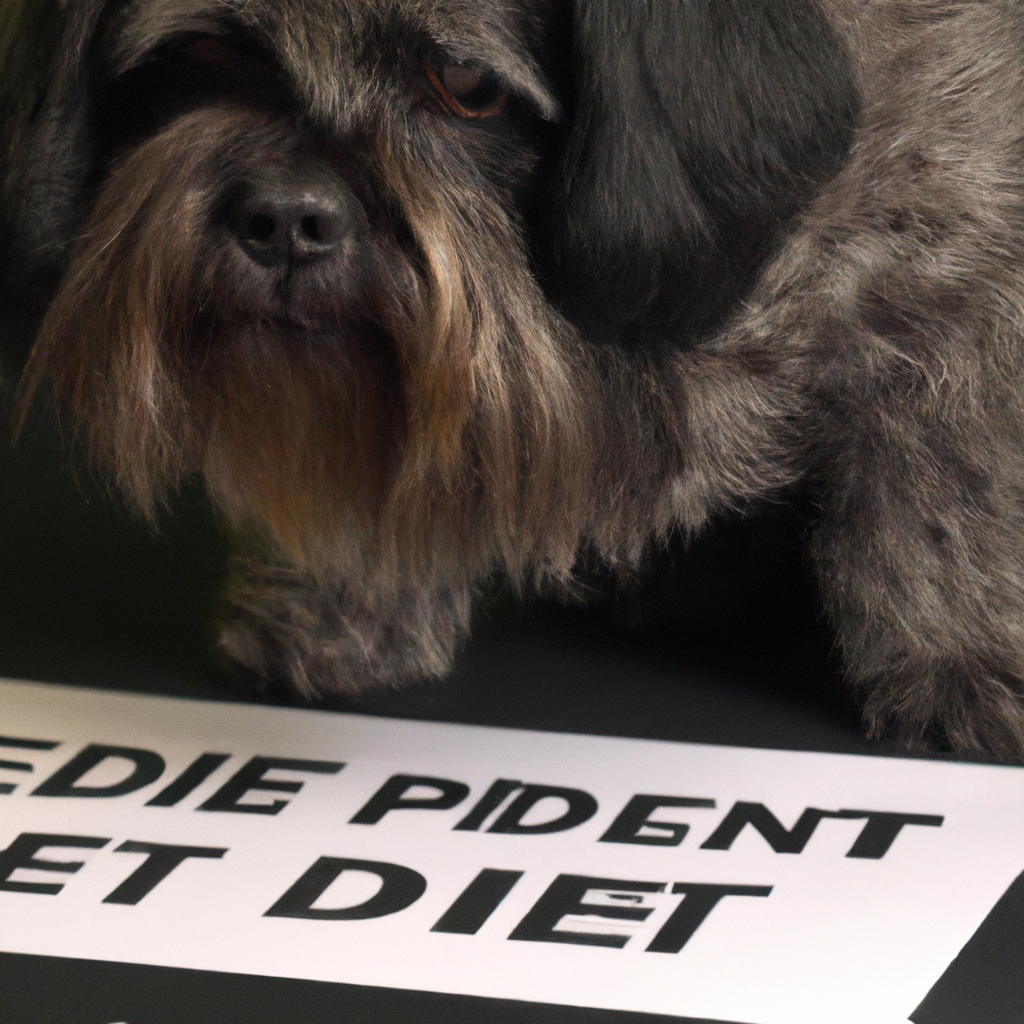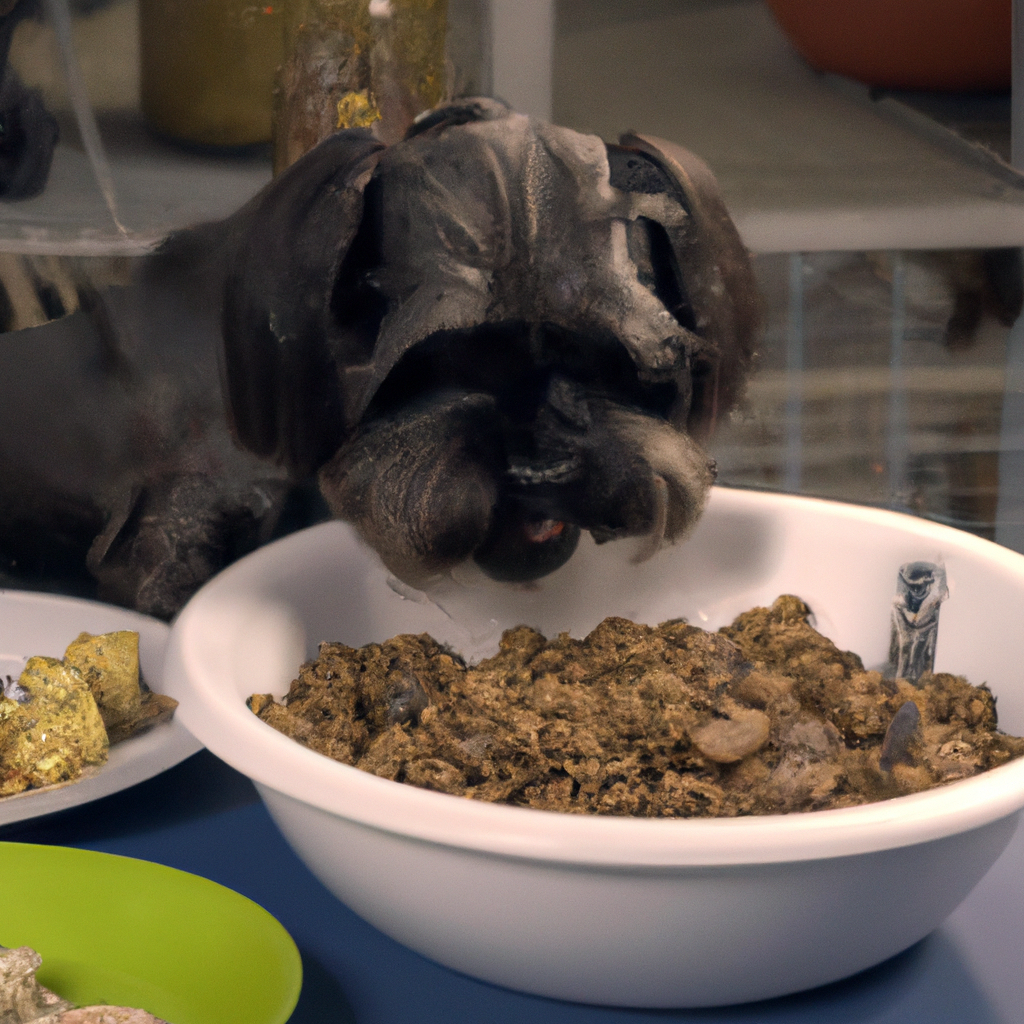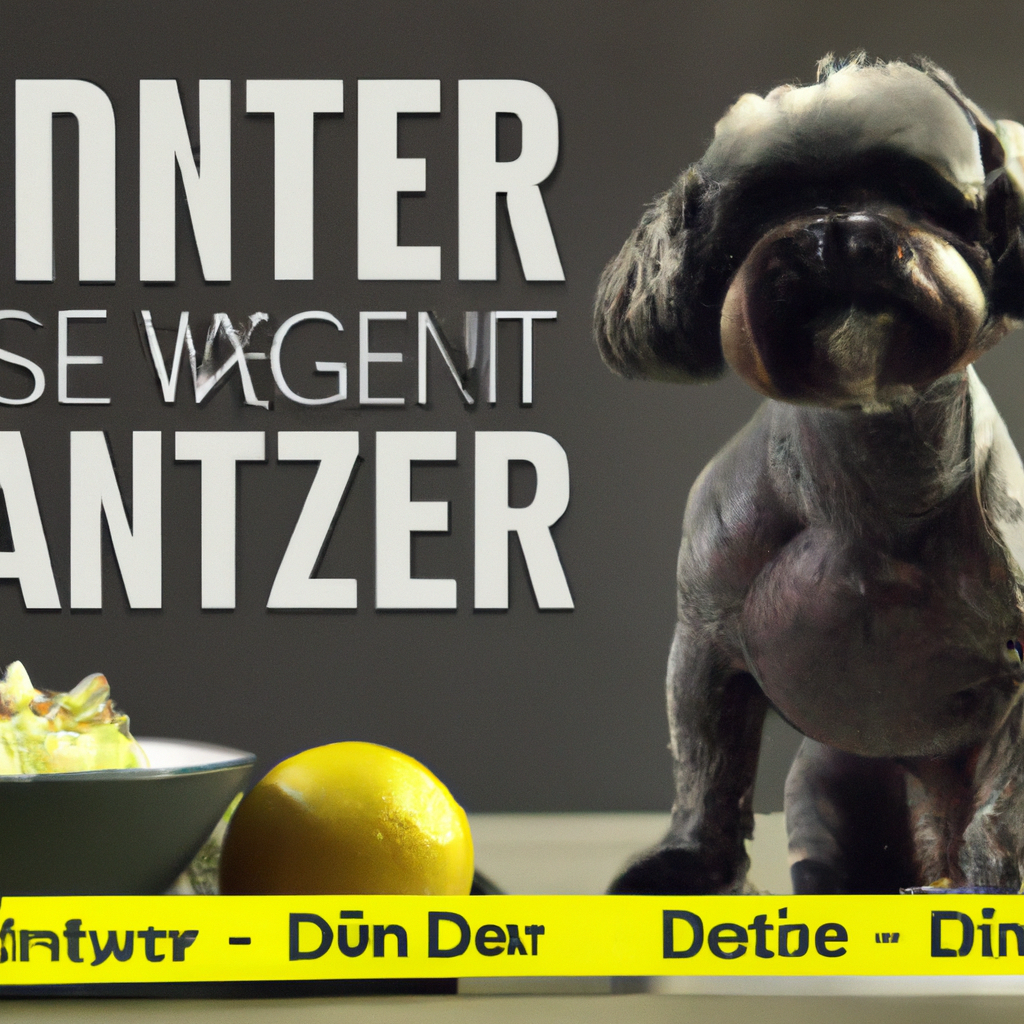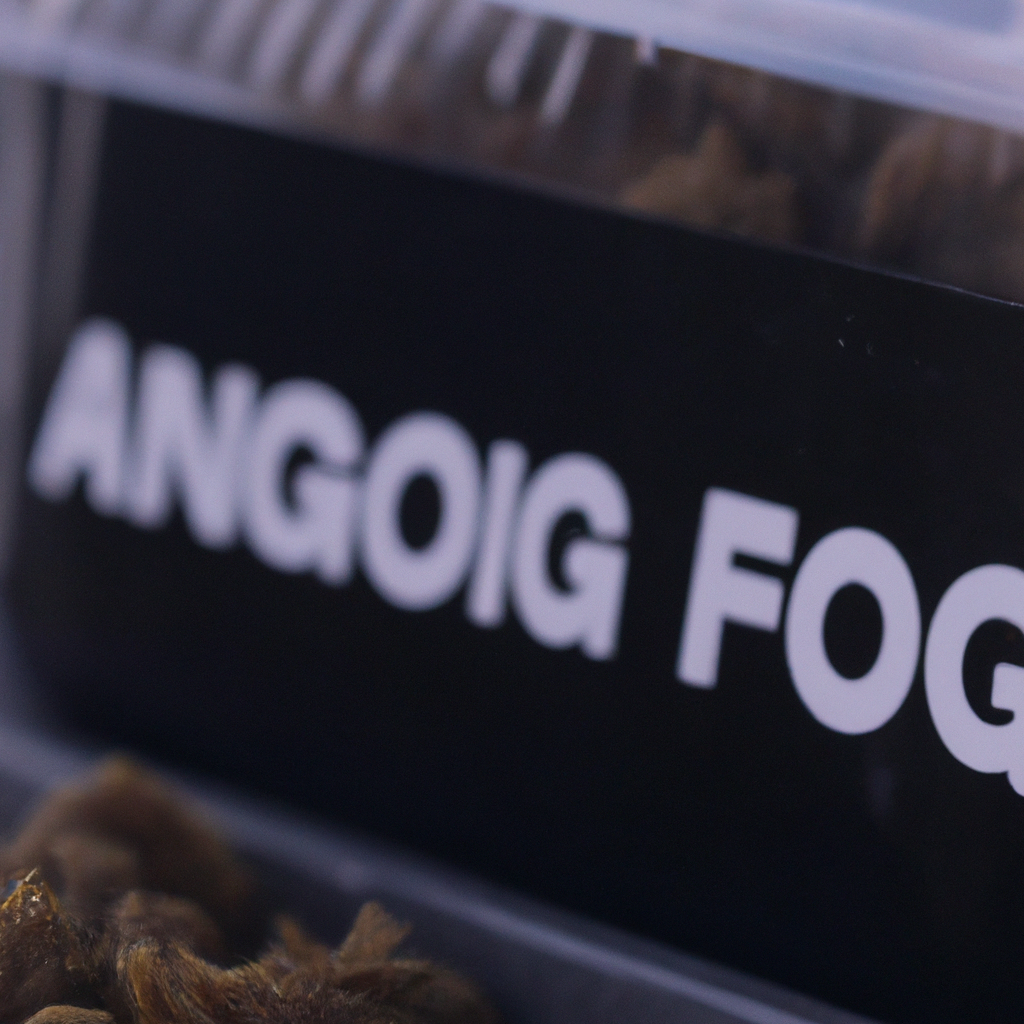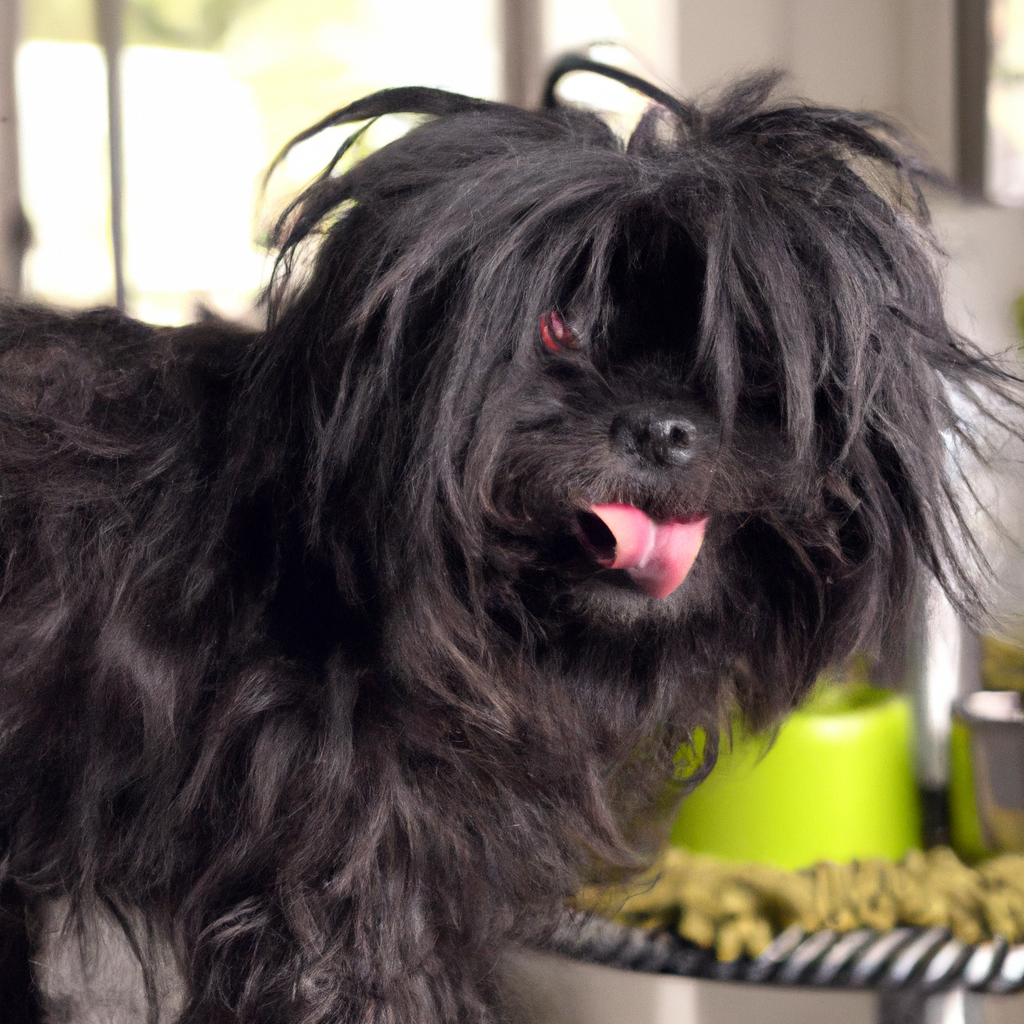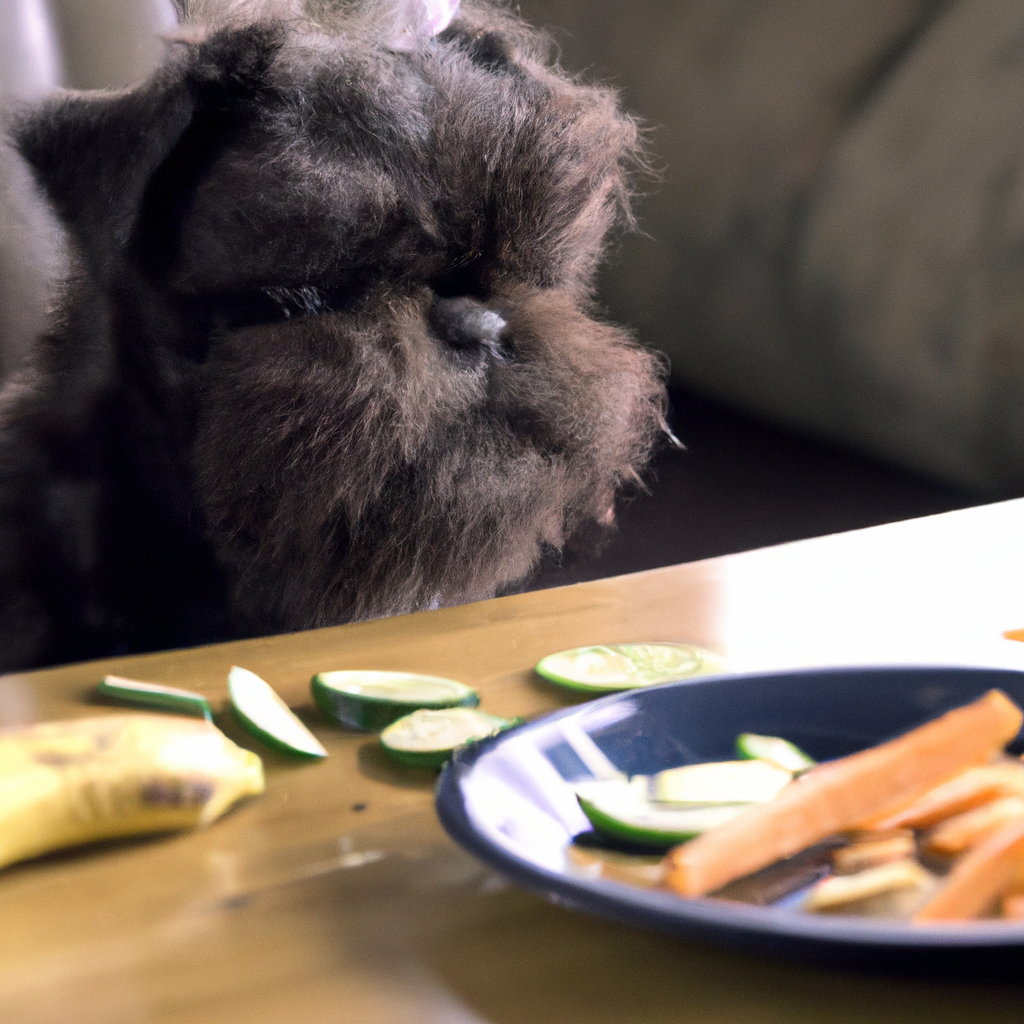The proper diet plan for Affenpinschers is crucial for their overall health and well-being. This small, energetic breed requires a balanced diet rich in proteins, carbohydrates, fats, vitamins, and minerals. The diet should be tailored to their age, size, metabolism, and activity level. High-quality commercial dog food that is specifically formulated for small breeds can be a good choice. However, some Affenpinschers may also benefit from a diet that includes cooked or raw meats, fruits, vegetables, and whole grains. Portion control is essential to prevent obesity, a common issue in this breed. Regular vet check-ups are also important to monitor their nutritional health and make any necessary adjustments to their diet.
Understanding the Nutritional Needs of Your Affenpinscher
Affenpinschers, affectionately known as “Monkey Dogs,” are small but energetic breeds that require a well-balanced diet to maintain their health and vitality. Understanding the nutritional needs of your Affenpinscher is crucial to ensure they live a long, happy, and healthy life.
Affenpinschers, like all dogs, require a balanced diet of proteins, carbohydrates, fats, vitamins, and minerals. Proteins are particularly important for these little powerhouses. They provide the essential amino acids necessary for the growth and repair of muscles and tissues. High-quality sources of protein include lean meats like chicken, turkey, and fish.
Carbohydrates are another important component of your Affenpinscher’s diet. They provide the energy your dog needs to stay active and playful. However, it’s important to choose complex carbohydrates like sweet potatoes and brown rice over simple carbs like white bread and pasta. Complex carbs are digested slowly, providing a steady source of energy, while simple carbs can cause blood sugar spikes and crashes.
Fats are also essential for your Affenpinscher’s health. They provide energy, help absorb vitamins, and contribute to a healthy coat and skin. Omega-3 and Omega-6 fatty acids, found in fish and flaxseed oil, are particularly beneficial. However, it’s important to monitor the amount of fat in your dog’s diet, as too much can lead to obesity.
Vitamins and minerals are the final piece of the puzzle. They support a range of bodily functions, from bone health to immune function. Most high-quality dog foods will contain the necessary vitamins and minerals your Affenpinscher needs. However, it’s always a good idea to consult with your vet to ensure your dog’s dietary needs are being met.
Portion control is another important aspect of your Affenpinscher’s diet. These dogs are small, and it can be easy to overfeed them. Overfeeding can lead to obesity, which can cause a host of health problems. It’s best to feed your Affenpinscher small meals throughout the day, rather than one large meal. This can help prevent overeating and keep their metabolism steady.
When it comes to treats, moderation is key. Treats can be a great training tool, but they should make up no more than 10% of your dog’s daily caloric intake. Opt for healthy treats like fruits and vegetables, and avoid anything with added sugars or artificial ingredients.
Lastly, it’s important to remember that every Affenpinscher is unique. Their dietary needs can vary based on their age, size, activity level, and overall health. A puppy will have different nutritional needs than a senior dog, and an active dog will need more calories than a sedentary one. It’s always best to consult with your vet to create a personalized diet plan for your Affenpinscher.
In conclusion, a proper diet plan for your Affenpinscher should include a balance of proteins, carbohydrates, fats, vitamins, and minerals. Portion control and moderation with treats are also key. By understanding the nutritional needs of your Affenpinscher, you can ensure they live a long, healthy, and happy life.
Creating a Balanced Diet Plan for Affenpinschers
Affenpinschers, affectionately known as “Monkey Dogs,” are small but energetic dogs known for their distinctive appearance and playful nature. Just like any other breed, Affenpinschers require a balanced diet to maintain their health and vitality. However, creating a proper diet plan for these little furballs is not as simple as it may seem. It requires a careful understanding of their nutritional needs, breed-specific health concerns, and even their unique eating habits.
Affenpinschers are small dogs, but they are packed with energy. This means they need a diet that is high in protein to support their active lifestyle. Protein is the building block of muscles and it helps to repair body tissues. It also aids in creating hormones and enzymes that are necessary for normal function. Foods like chicken, beef, fish, and turkey are excellent sources of protein.
However, protein alone is not enough. Affenpinschers also need a good amount of carbohydrates for energy. Carbohydrates provide the energy that your Affenpinscher needs for their daily activities. Sweet potatoes, brown rice, and oats are great sources of carbohydrates. They are also easy to digest, which is important for the sensitive stomach of an Affenpinscher.
Fats are another crucial part of an Affenpinscher’s diet. They provide the most concentrated source of energy, and they help to absorb vitamins and protect the body organs. Omega-3 and Omega-6 fatty acids, found in fish oil and flaxseed, are particularly beneficial for maintaining a healthy coat and skin.
While protein, carbohydrates, and fats are the main components of a balanced diet, Affenpinschers also need a variety of fruits and vegetables. These provide the necessary vitamins and minerals that are not always present in meat. They also contain fiber, which aids in digestion and helps to prevent constipation.
Affenpinschers are prone to certain health issues like hip dysplasia, heart problems, and obesity. Therefore, their diet should be tailored to prevent these conditions. For instance, foods rich in Omega-3 fatty acids can help to reduce inflammation and support joint health, which is beneficial for dogs with hip dysplasia. For heart health, a diet low in sodium is recommended. And to prevent obesity, portion control is crucial.
It’s also important to note that Affenpinschers can be picky eaters. They tend to prefer smaller meals throughout the day rather than one or two large ones. Therefore, it’s best to divide their daily food intake into three or four smaller meals. This not only suits their eating habits but also helps to maintain a steady metabolism and stable blood sugar levels.
Lastly, hydration is key. Always ensure that your Affenpinscher has access to fresh, clean water. Dehydration can lead to serious health issues, including kidney problems and heatstroke.
In conclusion, creating a balanced diet for an Affenpinscher involves more than just choosing the right food. It’s about understanding their nutritional needs, considering their health concerns, and accommodating their eating habits. With the right diet, your Affenpinscher can live a long, healthy, and happy life. Remember, every dog is unique, so it’s always best to consult with a vet or a pet nutritionist to create the most suitable diet plan for your furry friend.
The Importance of Portion Control in Affenpinschers’ Diet
Affenpinschers, affectionately known as “Monkey Dogs,” are small but energetic breeds that require a well-balanced diet to maintain their health and vitality. However, it’s not just about what they eat, but also how much they eat. Portion control plays a crucial role in an Affenpinscher’s diet, and understanding its importance can help ensure your furry friend stays healthy and happy.
Affenpinschers are known for their playful and adventurous nature. They love to explore and play, which means they burn a lot of energy. To fuel their activities, they need a diet rich in proteins, carbohydrates, and healthy fats. However, despite their high energy levels, Affenpinschers are small dogs, and their dietary needs are not as extensive as larger breeds. Overfeeding can lead to obesity, which can cause a host of health problems, including heart disease, diabetes, and joint issues.
Portion control is the key to preventing overfeeding. It’s about providing your Affenpinscher with the right amount of food based on their age, size, and activity level. Puppies, for instance, require more frequent meals with smaller portions to support their growth and development. Adult Affenpinschers, on the other hand, typically do well with two meals a day.
The amount of food your Affenpinscher needs can also depend on the type of food you’re feeding them. High-quality commercial dog foods often provide feeding guidelines based on weight, which can be a helpful starting point. However, these guidelines are not one-size-fits-all and may need to be adjusted based on your dog’s individual needs. For instance, an active Affenpinscher may require more food than a less active one, even if they are the same weight.
It’s also important to remember that treats count towards your Affenpinscher’s daily calorie intake. While treats can be a great training tool and a way to show your dog some love, they should make up no more than 10% of your dog’s daily calories. Too many treats can quickly lead to weight gain, especially in small breeds like the Affenpinscher.
Monitoring your Affenpinscher’s weight is a good way to gauge whether you’re feeding them the right amount. Regular vet check-ups can also help ensure your dog is maintaining a healthy weight. If your Affenpinscher starts to gain weight, it may be time to reassess their diet and portion sizes.
In addition to portion control, it’s also crucial to provide your Affenpinscher with a balanced diet. This means ensuring they’re getting a good mix of proteins, carbohydrates, and fats, as well as essential vitamins and minerals. A balanced diet can help support your Affenpinscher’s overall health and wellbeing, from their coat and skin to their digestive and immune systems.
In conclusion, portion control is an essential aspect of an Affenpinscher’s diet. It’s about finding the right balance between providing your dog with the nutrients they need to thrive and preventing overfeeding, which can lead to obesity and other health problems. By understanding the importance of portion control and implementing it in your Affenpinscher’s diet, you can help ensure your furry friend stays healthy, happy, and ready for their next adventure.
Best Foods to Include in Your Affenpinscher’s Diet
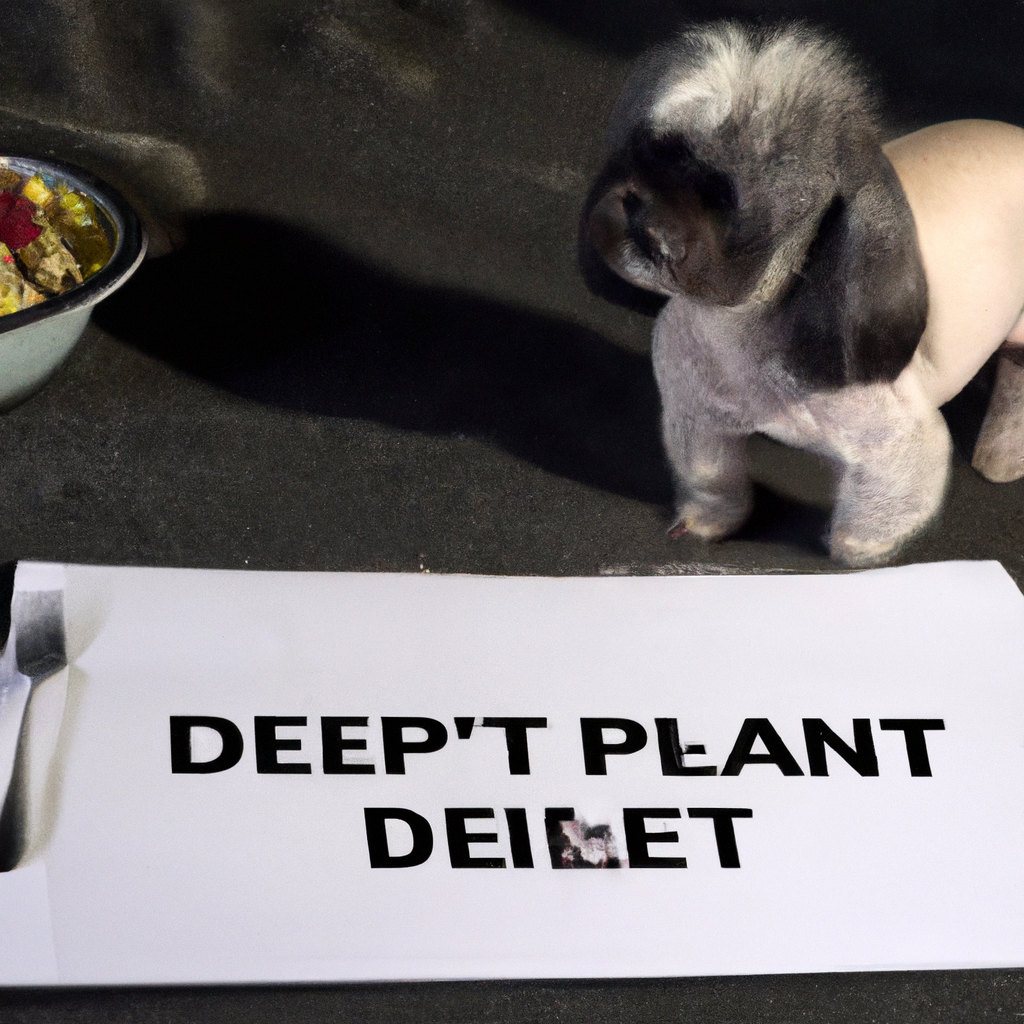
Affenpinschers, often referred to as “Monkey Terriers” due to their distinct, primate-like appearance, are small but sturdy dogs known for their playful and adventurous nature. As a pet parent to an Affenpinscher, it’s crucial to understand the importance of a proper diet plan to ensure your furry friend stays healthy and active.
Affenpinschers, like all dogs, require a balanced diet to thrive. This means their meals should be a mix of proteins, carbohydrates, fats, vitamins, and minerals. Proteins are particularly important for these energetic dogs as they help in muscle development and tissue repair. High-quality sources of protein include chicken, turkey, fish, and lean cuts of meat.
Carbohydrates are another essential component of an Affenpinscher’s diet. They provide the energy your dog needs to fuel its playful antics. However, it’s important to choose complex carbohydrates like sweet potatoes, brown rice, and oats, as these are easier for your dog to digest and provide a steady release of energy.
Fats, though often vilified, are actually a necessary part of your Affenpinscher’s diet. They provide essential fatty acids that support skin and coat health, boost the immune system, and aid in nutrient absorption. Healthy sources of fats include fish oil, flaxseed, and chicken fat.
Now, let’s not forget about vitamins and minerals. These micronutrients play a crucial role in various bodily functions, from bone health to immune function. Fruits and vegetables are excellent sources of vitamins and minerals. Blueberries, for instance, are packed with antioxidants, while carrots are rich in vitamin A.
While it’s important to include all these nutrients in your Affenpinscher’s diet, it’s equally important to ensure they’re getting them in the right proportions. Overfeeding or underfeeding certain nutrients can lead to health issues. For instance, too much protein can strain your dog’s kidneys, while too little can lead to muscle wasting. Similarly, too many fats can lead to obesity, while too few can cause skin and coat problems.
To ensure your Affenpinscher is getting a balanced diet, you might consider feeding them high-quality commercial dog food. These products are typically formulated to meet the nutritional needs of dogs, and they come in various formulas tailored to different breeds, sizes, and life stages.
However, not all commercial dog foods are created equal. When choosing a product, look for one that lists a high-quality source of protein as the first ingredient. Avoid products that contain fillers like corn and wheat, as these offer little nutritional value.
If you prefer to prepare your Affenpinscher’s meals at home, consider consulting with a veterinarian or a pet nutritionist. They can help you devise a meal plan that meets your dog’s nutritional needs.
Remember, every Affenpinscher is unique, and what works for one might not work for another. Factors like age, weight, activity level, and health status can all affect your dog’s dietary needs. Therefore, it’s important to monitor your dog’s weight and overall health regularly and adjust their diet as needed.
In conclusion, a proper diet plan for an Affenpinscher should be balanced and tailored to their individual needs. By providing your furry friend with the right nutrients in the right proportions, you can help ensure they live a long, healthy, and happy life.
Avoiding Common Dietary Mistakes with Affenpinschers
Affenpinschers, affectionately known as “Monkey Dogs,” are small but energetic breeds that require a well-balanced diet to maintain their health and vitality. However, many Affenpinscher owners often make common dietary mistakes that can negatively impact their pet’s health. Understanding these mistakes and how to avoid them can help ensure your Affenpinscher thrives.
One of the most common mistakes is overfeeding. Affenpinschers are small dogs, typically weighing between 7 to 9 pounds. Despite their small size, they have a big appetite and can easily become overweight if not monitored closely. Overweight dogs are at risk for a variety of health problems, including heart disease, diabetes, and joint issues. To avoid overfeeding, it’s important to measure your dog’s food and not rely on guesswork. Most vets recommend feeding Affenpinschers between 1/4 to 1/2 cup of high-quality dry food a day, divided into two meals.
Another common mistake is feeding your Affenpinscher a diet that’s too high in protein. While protein is an essential part of any dog’s diet, Affenpinschers don’t require as much as larger breeds. Too much protein can lead to kidney problems in the long run. A diet that’s around 18-25% protein is usually sufficient for Affenpinschers.
In addition to protein, it’s also crucial to ensure your Affenpinscher’s diet is balanced with the right amount of fats and carbohydrates. Fats provide essential fatty acids and help your dog absorb vitamins, while carbohydrates provide energy. However, too much of either can lead to obesity. Look for dog food that contains a balance of these nutrients, and avoid those with fillers like corn and wheat, which provide little nutritional value.
Feeding your Affenpinscher table scraps is another mistake to avoid. While it can be tempting to share your meal with your furry friend, many human foods are not safe for dogs. Foods like chocolate, grapes, onions, and garlic can be toxic to dogs. Additionally, feeding your dog from the table can encourage begging and other behavioral issues. Instead, stick to dog-safe fruits and vegetables as treats, and always consult your vet before introducing new foods into your dog’s diet.
Lastly, many Affenpinscher owners make the mistake of not adjusting their dog’s diet as they age. Puppies, adults, and senior dogs all have different nutritional needs. Puppies need more calories and protein to support their growth, while senior dogs may need fewer calories but more fiber and certain vitamins. Always choose a dog food that’s appropriate for your dog’s life stage, and consult your vet if you’re unsure.
In conclusion, avoiding these common dietary mistakes can help ensure your Affenpinscher stays healthy and happy. Remember to measure your dog’s food, balance their diet with the right amount of protein, fats, and carbohydrates, avoid feeding them table scraps, and adjust their diet as they age. With the right diet, your Affenpinscher can live a long, healthy life full of the energy and vitality this breed is known for.
How to Maintain a Healthy Weight for Your Affenpinscher
Affenpinschers, affectionately known as “Monkey Dogs,” are small but sturdy dogs known for their distinctive appearance and playful, energetic nature. As a pet owner, one of your primary responsibilities is to ensure that your Affenpinscher maintains a healthy weight. This task can be a bit challenging, given their love for food and their propensity to gain weight. However, with a proper diet plan and regular exercise, you can keep your Affenpinscher in tip-top shape.
Firstly, it’s essential to understand that Affenpinschers, like humans, have unique dietary needs that change throughout their lives. Puppies, for instance, require a diet rich in protein to support their rapid growth and development. Adult Affenpinschers, on the other hand, need a balanced diet that includes proteins, carbohydrates, and fats in the right proportions to maintain their energy levels and overall health. Senior Affenpinschers may require a diet lower in calories but higher in fiber and certain nutrients to support their aging bodies.
When it comes to feeding your Affenpinscher, portion control is key. Overfeeding can lead to obesity, which can, in turn, lead to a host of health problems, including heart disease, diabetes, and joint issues. To avoid this, it’s advisable to feed your Affenpinscher measured meals at regular intervals rather than leaving food out all day. This not only helps control their calorie intake but also establishes a feeding routine, which can be beneficial for their digestion.
The type of food you feed your Affenpinscher also plays a crucial role in their weight management. While it may be tempting to feed them table scraps or commercially available dog foods that are often laden with fillers and artificial ingredients, these can be detrimental to their health in the long run. Instead, opt for high-quality, nutrient-dense dog foods that are specifically formulated for small breed dogs. These foods typically contain the right balance of nutrients your Affenpinscher needs and are more likely to keep them satiated, reducing the chances of overeating.
In addition to a proper diet, regular exercise is also crucial for maintaining a healthy weight for your Affenpinscher. These dogs are naturally active and love to play, so make sure to provide them with plenty of opportunities for physical activity. This could be in the form of daily walks, play sessions in the yard, or even agility training. Not only does this help burn off excess calories, but it also keeps their muscles toned and their minds stimulated.
Lastly, regular vet check-ups are essential in monitoring your Affenpinscher’s weight and overall health. Your vet can provide personalized advice based on your dog’s age, weight, and health status, and can help you make any necessary adjustments to their diet or exercise routine.
In conclusion, maintaining a healthy weight for your Affenpinscher involves a combination of a balanced diet, portion control, regular exercise, and routine vet check-ups. By following these guidelines, you can ensure that your Affenpinscher stays healthy, happy, and active throughout their life. Remember, a healthy Affenpinscher is a happy Affenpinscher!
The Role of Supplements in an Affenpinscher’s Diet
Affenpinschers, affectionately known as “Monkey Dogs,” are small but energetic dogs known for their distinctive appearance and playful nature. As a pet parent to an Affenpinscher, it’s essential to understand the role of a proper diet plan, including the use of supplements, in maintaining their overall health and vitality.
Affenpinschers, like all dogs, require a balanced diet to thrive. This means a mix of proteins, carbohydrates, fats, vitamins, and minerals. However, due to their small size and high energy levels, they may require a diet that’s slightly different from other breeds. This is where supplements come into play.
Supplements can be a valuable addition to your Affenpinscher’s diet, especially if they have specific nutritional needs that aren’t being met by their regular food. For instance, if your Affenpinscher is a picky eater or has a sensitive stomach, they might not be getting all the nutrients they need from their meals. In such cases, supplements can help fill in the nutritional gaps.
One of the most common supplements for Affenpinschers is a multivitamin. This can provide a range of essential nutrients that your dog might not be getting from their food, such as vitamins A, C, and E, as well as various B vitamins. These are crucial for maintaining your dog’s immune system, promoting healthy skin and coat, and supporting overall health.
Omega-3 fatty acids are another beneficial supplement for Affenpinschers. These essential fats, which are often found in fish oil supplements, can help support your dog’s heart health, reduce inflammation, and promote a shiny, healthy coat. They can also aid in brain development, making them particularly beneficial for puppies.
Probiotics are also worth considering for your Affenpinscher’s diet. These beneficial bacteria can help support your dog’s digestive health, which is particularly important for small breeds like Affenpinschers that can be prone to stomach issues. Probiotics can help promote a healthy gut, aid in digestion, and even boost your dog’s immune system.
While supplements can be a valuable addition to your Affenpinscher’s diet, it’s important to remember that they should not replace a balanced, nutritious diet. They are meant to complement your dog’s meals, not substitute them. Always consult with your vet before starting any new supplement regimen for your pet. They can provide guidance on the right types and amounts of supplements for your Affenpinscher’s specific needs.
It’s also worth noting that not all supplements are created equal. When choosing a supplement for your Affenpinscher, look for high-quality products from reputable manufacturers. These should be free from artificial additives and fillers, and ideally, they should be made specifically for dogs.
In conclusion, supplements can play a significant role in an Affenpinscher’s diet, helping to ensure they get all the nutrients they need for a healthy, happy life. Whether it’s a multivitamin to boost overall health, omega-3s for heart and coat health, or probiotics for digestive support, these additions can make a big difference in your Affenpinscher’s wellbeing. Just remember to consult with your vet and choose high-quality products, and your Affenpinscher will be well on their way to a balanced, nutritious diet.
Transitioning Your Affenpinscher to a New Diet Plan
Transitioning your Affenpinscher to a new diet plan can be a challenging task, but with the right approach, it can be done smoothly and effectively. Affenpinschers, also known as “Monkey Terriers,” are small, energetic dogs known for their playful and adventurous nature. Like any other breed, they require a balanced diet to maintain their health and vitality. However, changing their diet requires careful planning and execution to avoid any potential health issues.
Firstly, it’s important to understand why a diet change might be necessary for your Affenpinscher. Perhaps your vet has recommended a new diet due to health concerns, or maybe you’ve noticed that your pet isn’t as energetic as they used to be. It could also be that you’re simply looking to provide a more balanced and nutritious diet for your furry friend. Whatever the reason, it’s crucial to remember that a proper diet is key to your Affenpinscher’s overall health and well-being.
When transitioning your Affenpinscher to a new diet, it’s recommended to do so gradually. A sudden change in diet can cause digestive upset or even lead to more serious health problems. Start by mixing a small amount of the new food with their current food. Gradually increase the proportion of the new food while decreasing the amount of the old food over a period of about a week. This slow transition will help your Affenpinscher adjust to the new diet without causing any digestive distress.
It’s also important to consider the nutritional needs of your Affenpinscher when planning their new diet. Affenpinschers, despite their small size, are energetic and require a diet rich in protein to support their active lifestyle. They also need a good balance of carbohydrates for energy, and fats for a healthy coat and skin. Additionally, they require certain vitamins and minerals for overall health. Therefore, it’s essential to choose a diet that provides all these nutrients in the right proportions.
While planning your Affenpinscher’s diet, you might be tempted to include human food. While it’s true that some human foods can be healthy for dogs, others can be harmful or even toxic. Foods like chocolate, grapes, onions, and garlic should never be given to dogs. Instead, focus on providing a balanced diet of high-quality dog food, supplemented with safe fruits and vegetables like apples, carrots, and green beans.
Lastly, remember to monitor your Affenpinscher’s response to the new diet. Pay attention to their energy levels, weight, coat condition, and overall behavior. If you notice any negative changes, it might be a sign that the new diet isn’t working well for them. In such cases, it’s best to consult with your vet to make necessary adjustments.
In conclusion, transitioning your Affenpinscher to a new diet plan requires careful planning and patience. It’s important to make the transition gradually, consider their nutritional needs, avoid harmful human foods, and monitor their response to the new diet. With these steps, you can ensure that your Affenpinscher enjoys a balanced, nutritious diet that supports their health and vitality. Remember, a healthy dog is a happy dog!In conclusion, a proper diet plan for Affenpinschers should include high-quality commercial dog food that is specifically formulated for small breeds. The diet should be rich in protein to support their muscle development, and contain a balanced amount of carbohydrates for energy, and fats for a healthy coat and skin. Additionally, fruits, vegetables, and supplements can be included for added vitamins and minerals. Portion control is crucial to prevent obesity, and treats should be given sparingly. Always ensure fresh water is available. It’s also recommended to consult with a vet to customize a diet plan according to the dog’s age, size, and health condition.
